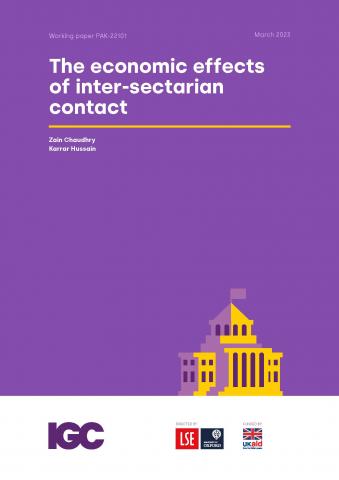The economic effects of inter-sectarian contact
-
Chaudhry and Hussain Working paper March 2023
PDF document • 637.73 KB
The Shia-Sunni sectarian divide within Islam has recently become of great importance economically and politically, not just in the Middle East but globally. At a geo-political level, this has led to competition between states such as Saudi Arabia and Iran with proxy effects in Pakistan, Lebanon, Yemen, Syria and elsewhere. The existence of distrust between two important societal groups creates the potential for conflict in every country with substantial Shia and Sunni populations. In Pakistan, the country of our focus, this has led to terrorism that has killed thousands over the past few decades. Our goal is to understand the existing nature of differences between the two sectarian groups and their interaction and whether contact in a religious sphere and support for harmony from authority figures can reduce prejudice and economic frictions.




